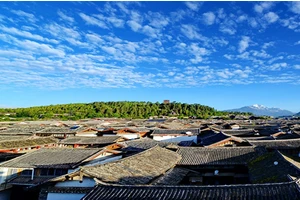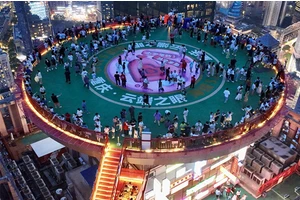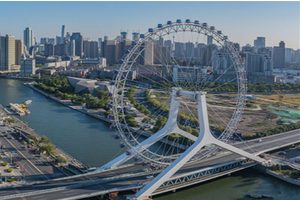Do not travel to Japan
Ten Points for Attention in Japan Tour
1. Don't forget to take off your shoes
In Japan, when in Rome, do as the Romans do, whether entering a hotel room, visiting a Japanese home, or entering a conference room or office. In short, as long as you enter the house, you have to change your slippers, sometimes twice. The custom of changing slippers is inviolable in Japan. Don't forget to take off your shoes before entering the house.
2. Never go out without an umbrella.
Take an umbrella when you go out. Japan has a maritime climate, with uncertain rain and shine. Take an umbrella to be prepared. Take a folding umbrella when traveling, but it's best to take a gentleman's umbrella when going on business or visiting relatives. Because in Japan, there is an umbrella basket in front of most shops and even private houses. Long umbrellas can stand in the basket, but folding umbrellas can't be put in the basket.
3. You don't have to tip money.
Japan, like many Asian countries, has no habit of tipping. Because 10% has been added to the bills of big hotels and restaurants? D? D15% service charge. If there is no special service for taxis, there is no need to tip. As for spending in beauty salons, barbershops, bars and nightclubs, there is no need to tip.
4. Drink tap water when you are thirsty
Tap water in Japan can be directly drunk. There are running water nozzles in stations and large public places. Grand hotels and restaurants have mineral water for guests to drink.
5, bring your own mobile phone can't be used
You don't have to bring a mobile phone to Japan. Because of the different standards, it is impossible to use your own mobile phone there. In addition, the voltage in Japan is 110 volts (mainly two-pin flat plugs), so battery chargers such as cameras and video recorders can't be used unless they are compatible with 110-240 volts.
6. What to buy and what not to buy
Small household appliances in tax shops are of very good quality and cheap prices. It's generous and affordable to bring some back as gifts to relatives and friends. It's not cost-effective to buy small boutique toys, clothes and shoes. Most of them are made in China, and they are surprisingly expensive. In addition, Japan's lithium batteries for film and cameras are also more expensive than those in China, so you can take more when you go abroad. Department stores and shops in Japan close at around 7 pm (only a few are open until 9 pm), so it is almost impossible to go shopping at night.
7. The subway is convenient and cheap.
It is best to take the subway to go shopping by yourself in Japan, because it is the cheapest. Japan's subway traffic is very developed, the subway lines are as dense as cobwebs, and the subway stations go straight to the bottom of high-rise buildings, so there is a lot of room for you to choose. The consumption in Japan is very high, so taxis are of course very expensive. If you pay for it yourself, go out and take the subway. In addition, if you travel and stay in a hotel, you can't speak Japanese. If you go out on your own, you'd better bring a business card of the hotel so that you can get a ride back in case you get lost.
8. It is inconvenient to exchange money.
Exchange money must be exchanged at foreign currency exchange banks or other legal currency exchange places. In addition, you must show your passport. However, the Japanese bank exchange business is only conducted between 9: 00 am and 3: 00 pm. Moreover, banks are closed all day on Saturdays, Sundays and major holidays. Therefore, money can only be exchanged in restaurants, but it is slightly more expensive than bank exchange.
9. Call
And pink phone: suitable for making domestic calls in Japan, only accepting ten yen coins (ten dollars and three cents). Green and gold phone: making international calls, accepting calling cards or ten or one hundred yen coins. Of course, it is best to buy an IP phone card.
Note: Japan is l hours faster than China.
The voltage in Japan is 100 volts, so use a leucorrhea razor and a hair dryer.
The tap water of Japanese hotel 10 can be directly drunk from Sichuan.
In Japan, traffic is on the left, and the doors are on the left. Pay attention when crossing the road. Observe the traffic lights for safety.
Japan is a country that doesn't accept tips, and the service charge for many people has been included in the bill.
You have to pay 5% consumption tax for shopping in Japan. In shopping malls, you can go through the tax refund formalities at the designated counter when you purchase over 10,000 yen.
Daily necessities in Japan are cheaper than those in China, and many hundred-yuan shops are very convenient. But clothes are expensive, so probably the most you need to bring to Japan is clothes.
Bring two bottles of old wine to your tutor and the people who will take care of you. Low-alcohol liquor is the best, because it tastes similar to taro shochu, so it is more suitable for Japanese people. Shaoxing wine is 5 years old.
About this much first. I'll send it to you after sorting it out
Hair is very expensive in Japan.
Traveling to Japan is a wonderful experience. There are many unique cultures, delicious food and scenic spots waiting for you to explore. The following are some suggestions, hoping to help your travel:
1. Planning your itinerary: Before you leave, plan your itinerary in advance to know the opening hours, modes of transportation and ticket prices of various scenic spots. You can refer to some travel guides or consult with travel agencies.
2. Choose the right season: Japan has four distinct seasons, and each season has different beautiful scenery. You can enjoy the beautiful scenery of cherry blossoms in spring, go to the beach for vacation in summer, enjoy red leaves in autumn, and experience hot springs and snow in winter. Choose the right season to travel according to your interests and preferences.
3. Try local cuisines: Japan is famous for its rich and varied cuisines, including sushi, Lamian Noodles, barbecue and tempura. Try local specialties during your trip, and you can go to some restaurants or snack stalls frequented by local people.
4. Experience traditional culture: Japan has a long history and rich traditional culture. You can visit some ancient temples, shrines, watch traditional tea ceremony performances or participate in some workshops for making traditional handicrafts.
5. Shopping: There are many shopping centers and shopping malls in Japan, where you can buy all kinds of fashionable goods, electronic products and cartoons. In addition, there are some characteristic shopping blocks, such as Ginza in Tokyo and Shinsaibashi in Osaka.
6. Pay attention to etiquette: In Japan, there are some special etiquette to be observed, such as not talking loudly in public places and not eating on the subway. Respecting local customs and culture will add more fun to your trip.
7. Transportation: Japan's transportation system is very developed, so you can choose to take the high-speed rail, subway or bus to your destination. It is more convenient to visit the city by buying a travel pass or a one-day pass.
Prev: Richmond travel






